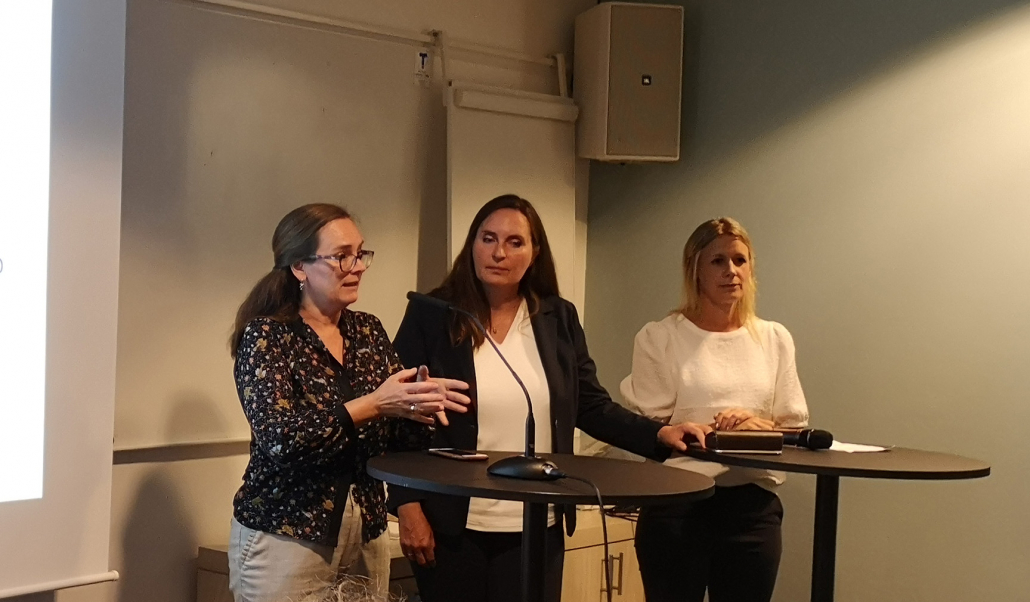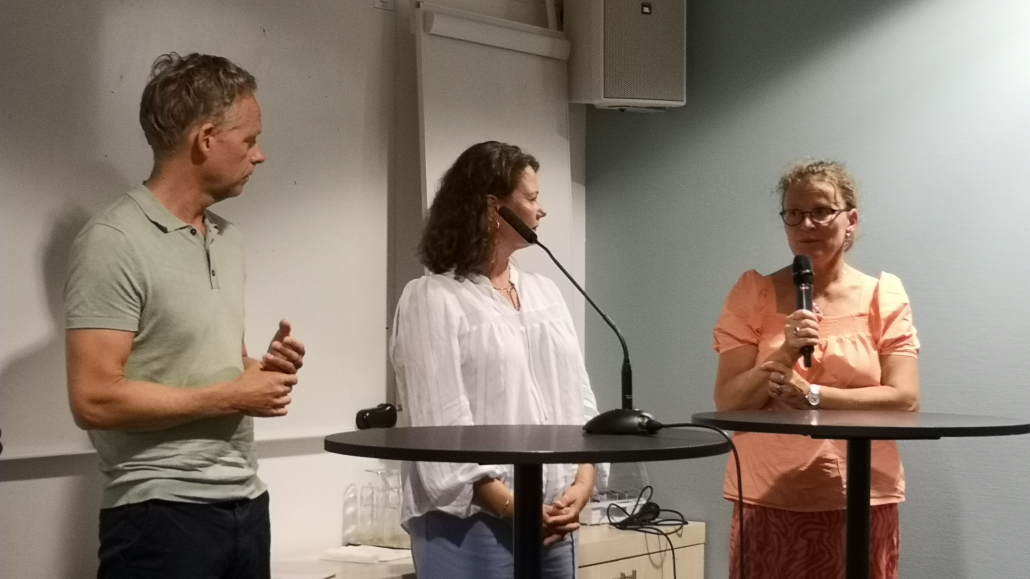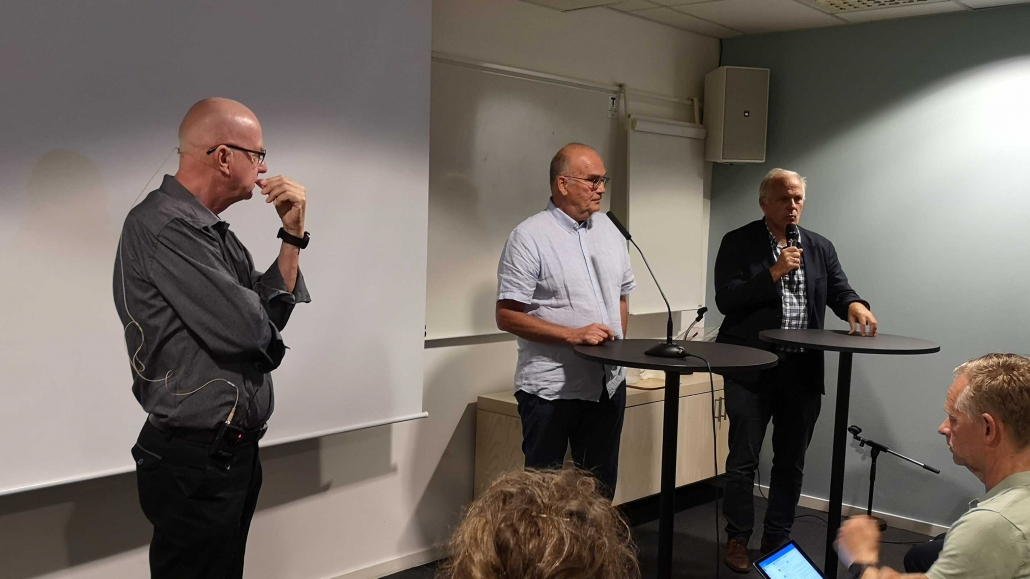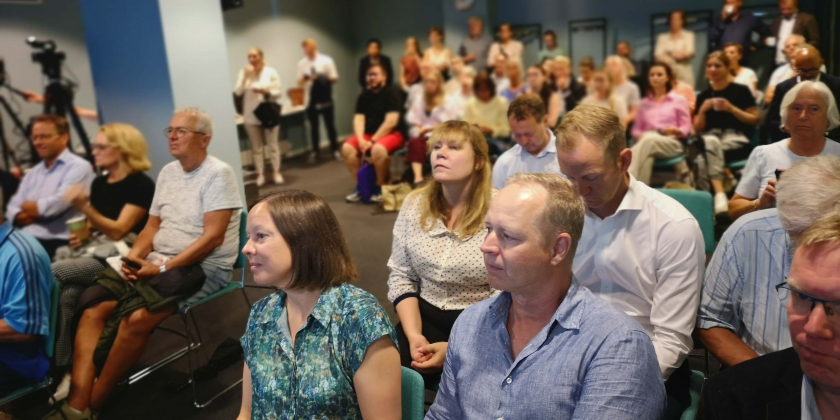The future of precision cancer medicine
The first national initiatives for precision cancer medicine have successfully taken shape in Norway, but what has been achieved and what does it mean for cancer patients?
“We are standing at the entrance of a fantastic era, where the dream is to give precise and effective treatment to all patients.”
Jan Frich, Deputy CEO and Chief Medical Officer at the South-Eastern Regional Health Authority opened the meeting at Arendalsuka 2022, where the key topics were cancer, precision medicine and cooperation.
The meeting gave an overview of the success of the national initiatives in precision cancer medicine in Norway over the last two years and was organised by the public-private consortium CONNECT.
Watch the meeting here:
Understanding cancer
So, what is cancer and precision medicine all about?
“It is about more precis diagnostics and more precise treatment, which consider the characteristics of the individual patient and their disease. The cancer is not classified in terms of where it is found, but in terms of its molecular traits,” Frich commented.
Sigbjørn Smeland, Head of the Cancer Clinic at Oslo University Hospital, agreed that the evolving understanding of cancer is now changing how cancer is diagnosed:
“Cancer is about specific changes in the genetic material, which lead to uncontrolled growth. There has been an extreme development in the technology for testing. Now you can get the results from a gene panel test in a matter of days. This changes oncology and it is the way we must go forward.”
Advantages of genetic testing
The national infrastructure for precision cancer diagnostics – also known as InPreD – is being set up at all university hospitals. Three hospitals have already begun testing.
Hege Russnes, Professor, Senior Consultant in Pathology and Research Group Leader at Oslo University Hospital, gave an update on their progress:
“We are well underway with broad gene panel testing of cancer patients that do not have other treatment options. Twice a week, the results are discussed in a tumour board that decides if the available treatments in clinical studies will be beneficial or not.”

Hege Russnes (Oslo University Hospital), Grethe Foss (Norwegian Directorate of Health) and Birgitte Lygren (Roche Diagnostics) discussed the importance of precision diagnostics for cancer patients. Photo: Sofia Linden / Oslo Cancer Cluster
Grethe Foss, Senior Adviser at the Norwegian Directorate of Health, explained:
“The Norwegian Directorate of Health have helped to facilitate the refunds of the large gene panel tests. It is important to make this a part of the established health service. It makes it easier to recruit patients to clinical studies.”
The pharmaceutical industry also sees advantages in testing more cancer patients.
“Broad genetic testing is the basis for implementation of precision medicine, so we quickly can map out which patients can benefit from other treatments. To have this testing in place, enables us to open more clinical studies in Norway,” said Birgitte Lygren, Medical Affairs Manager at Roche Diagnostics.
From diagnosis to treatment
Patients that have received testing can be recruited into clinical trials. IMPRESS-Norway was established in 2020 as a national clinical study that aims to evaluate the efficacy of cancer drugs on new indications. Pharmaceutical companies contribute drugs into the study, which are reimbursed by the regional health authorities if the patient has responded to treatment after 16 weeks.
- Read more about in this article from Helse Sør-Øst
The study is available at all hospitals that treat cancer patients in Norway and coordinated by Åslaug Helland, Research Director at Oslo University Hospital and Professor at the University of Oslo.
“We have teamed up with four pharmaceutical companies and we know there are more coming onboard this autumn. That means we will be able to include more patients for treatment,” Helland said.

Ole Alexander Opdalshei (Norwegian Cancer Society), Eli Bergli (Novartis) and Åslaug Helland (Oslo University Hospital) talked about the importance of industry collaboration in clinical studies. Photo: Sofia Linden / Oslo Cancer Cluster
Eli Bergli, Medical Head Oncology at Novartis Norway, complemented:
“We gain more knowledge about medicines in new diagnostic areas, where they are not approved today. Our neighbouring countries are now looking to Norway and getting inspired of what we have achieved.”
Ole Alexander Opdalshei, Assistant General Secretary at the Norwegian Cancer Society, was impressed by the collaboration across sectors:
“As a patient, you are completely dependent on the good collaboration and trust between public and private. This is important to secure the patients access to new drugs.”
Where are we headed?
Approximately 100 patients have been included in IMPRESS so far and about 70 patients have reached the first end point. The results are promising, as about 40 per cent have responded to the off-label treatment so far.
Kjetil Taskén, Head of the Cancer Research Institute at Oslo University Hospital, said:
“Precision medicine is about using the knowledge we have and try to find the right treatment for each patient. With precision diagnostics, we can find out which treatments don’t work and, in principal, get better Return On Investment when paying for new treatments.”

Terje Svabø moderated the meeting. In this photo Steinar Thoresen (Merck) and Sigbjørn Smeland (Oslo University Hospital) explain the difference precision cancer medicine can make. Photo: Sofia Linden / Oslo Cancer Cluster
Steinar Thoresen, Senior Medical Consultant in Merck Oncology and Medical Director in NordicRWE, is eager to build on these initiatives:
“This has been built with enthusiasm and passion. We have become recognized internationally. Now, it is time to set new goals. What could they be? More drugs into IMPRESS, quicker access to novel treatments, new financing models and better use of health data.”
The fantastic era of precision medicine, that Frich referred to at the start, is no longer a distant dream. Norway is paving the way to make precision medicine available to all cancer patients.











 Oslo Cancer Cluster
Oslo Cancer Cluster 